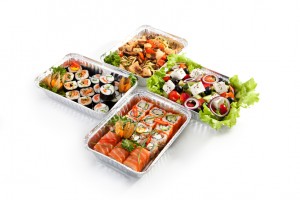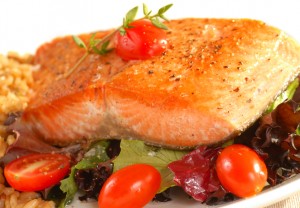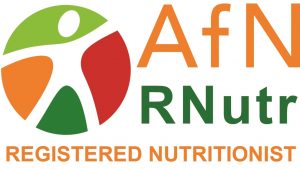This is the exciting season of sport with the Euros, Wimbledon, the Tour de France and now the Olympics. Athletes travel long distances to events, train hard and then compete. Discounting the sheer volume they need to eat, could the diet of athletes to help us keep fit while travelling for business?.
While powering through opponents at Wimbledon, Andy Murray reported that for breakfast he ate: scrambled eggs on a bagel, half a bagel with peanut butter, banana, a fruit smoothie and a whole cantaloupe melon. This meal is easy to digest, generally low fat and high in protein. Bagels are an interesting choice, the tougher texture comes from strong flour, yielding about 20% protein. Regular bread has only 8% protein and seeded bread around 10%.
Berry smoothies provide a good antioxidant vitamin fix; I recommend those prepared with skimmed milk or yoghurt to provide calcium.
Melon has the gift of slow release hydration while the red and orange varieties contain carotenoids and inositol.
Bananas are quickly digested, releasing glucose for instant energy and potassium which is essential for the electrolyte balance of cells. Low potassium levels can be a cause of cramps and fatigue.
The Athlete’s Breckie for Business Travellers
Bagels tend to be in specialist bagel emporiums, for business travellers these are plentiful in the major cities and railway stations as a ‘takeaway’ option, but care is needed not to add rich fillings such as cream cheese. They are less common at airports, but a compromise of café eggs on toast is a good alternative. Hotel breakfast buffets will always offer a minimum of boiled eggs and airlines always offer omelettes, although the sausage that comes with it would ruin the aim of a low fat/easy to digest breakfast.
Berry smoothies are in every takeaway café cool cabinet but not usually on offer in hotels. Airlines tend only to offer them in business class.
Small fruit salad servings are readily available and tend to be heavy on the melon, although it isn’t always ripe and tasty.
Andy Murray’s pre-match lunch was salmon and rice.
James Collins, the nutritionist for Arsenal Football Club also chooses easily digested lean protein with carbohydrate and tries to ensure that the players to get plenty of variety. Protein comes from turkey, lean beef, salmon and mackerel. This is served with carbohydrates such as rice, pasta or more unusual grains such as Amaranth (a South American grain) and Farro (a variety of wheat). A mixture of colourful vegetables is recommended daily. Immediately after matches, the players refuel with a buffet of sushi and sashimi.
This low-fat diet will prevent the body diverting blood from muscles, for long periods of digestion. The presence of oily fish such as salmon and mackerel provides vitamin D and the anti-inflammatory omega-3 fatty acids. Muscle turnover of iron is high in athletes and plenty of lean beef will help maintain good iron status.
The Athlete’s Meals for Business Travellers
Sushi is now available in many railways stations and airports cafes. Rice and fish or lean meat are on offer in Asian style restaurants, but we  need to be careful not to choose dishes where the ingredients are fried and served with rich sauces. Airlines tend to base meals around rice and meat or fish, but these can be in oily sauces or with fried rice. Picking up some takeaway sushi is a good way to get a light, nutritious meal on a journey.
need to be careful not to choose dishes where the ingredients are fried and served with rich sauces. Airlines tend to base meals around rice and meat or fish, but these can be in oily sauces or with fried rice. Picking up some takeaway sushi is a good way to get a light, nutritious meal on a journey.
Snacks
Fruit smoothies and homemade flapjacks are the snacks provided for the Arsenal players, the oats giving lots of soluble fibre and slow release energy. Both are portable, tasty treats we can all easily access.
The main advice given by the team nutritionist is to eat for your needs. I could happily develop a flapjack habit, but sadly I rarely need that extra energy boost. However, the light, nutritious diet of athlete’s, is definitely one that would also benefit the business traveller.






























